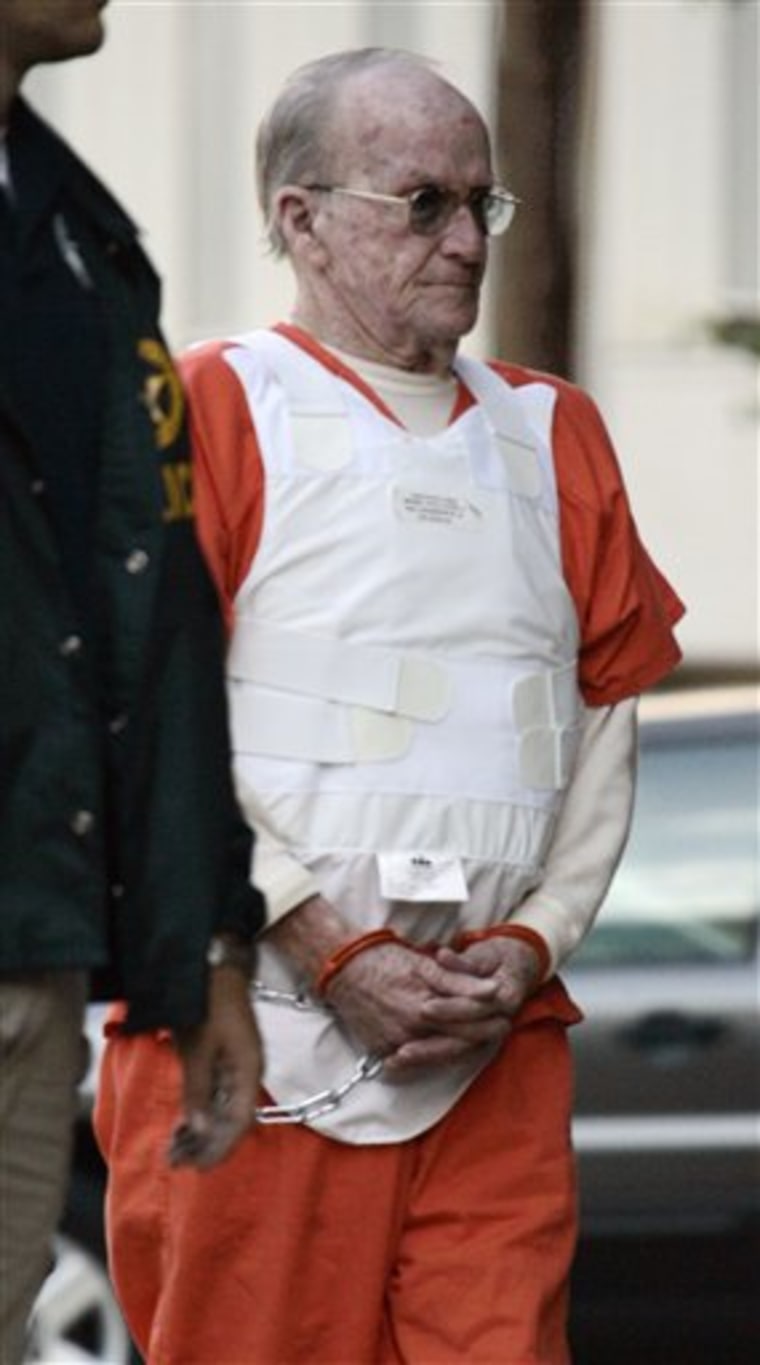One of two teenagers killed during the civil rights era of the 1960s was a quiet young man who never made trouble, his sister testified Tuesday at the trial of a reputed Ku Klux Klan member.
Thelma Collins took the witness stand on the second day of the federal court trial of James Ford Seale, who is charged with kidnapping and conspiracy in the deadly attacks on Collins' brother, Henry Hezekiah Dee, and Charles Eddie Moore, both 19.
The young men disappeared on May 2, 1964, and their bodies were found in a backwater of the Mississippi River south of Vicksburg more than two months later.
Collins, who now lives in Springfield, La., kept her composure but occasionally fought back tears during her testimony.
She said her brother had spent a summer with relatives in Illinois and returned with his hair "processed" in a slick style that required lots of care. "He would put a bandanna around his hair to keep his process in place," she said.
Prosecutors have said Ku Klux Klansmen abducted Dee and Moore because they had heard rumors that blacks were stockpiling firearms and suspected Dee was involved because he often wore his hair covered after returning from Chicago.
Prosecutors said during opening arguments Monday that they will prove Seale, now 71, was among those who took part in the abduction of Dee and Moore.
Defense attorneys said the government's case will be based largely on a member of the KKK who has changed his story in the 43 years since Dee and Moore died.
"Being a member of the Klan, as detestable and abominable as it may be, was not a crime then and is not a crime now," public defender George Lucas said.
Attorneys wrapped up four days of jury selection Monday by choosing eight whites and four blacks to hear the case. They also chose three white alternates, including one woman who said her abusive father used to be in the Klan.
Seale, a former crop-duster from Roxie, has denied belonging to the Klan.
